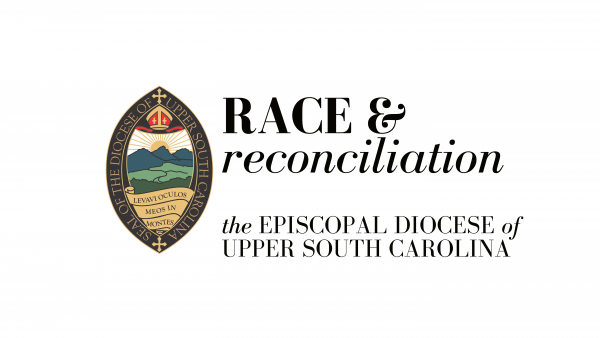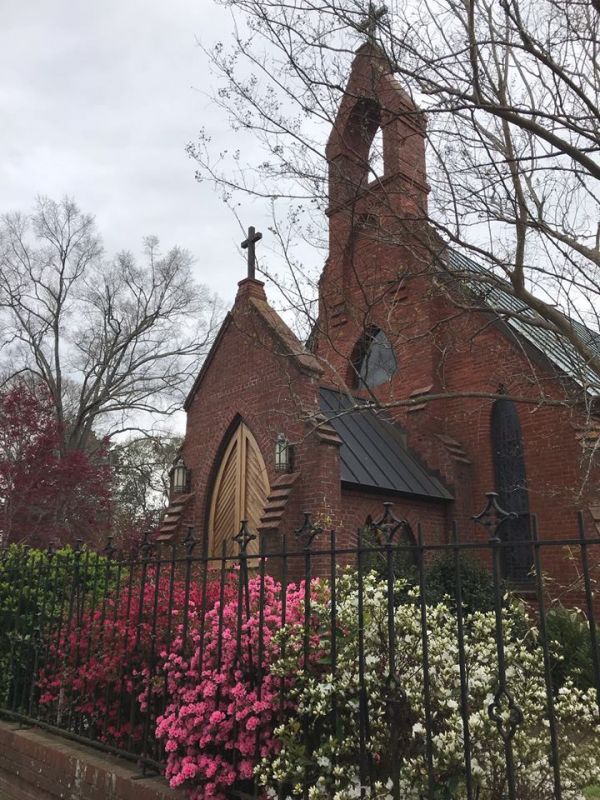Race & Reconciliation

Reconciliation is at the heart of what it means to be a follower of Jesus. When conflict and division surround us we are called to be healers and reconcilers. The work of reconciliation begins as we seek to understand that which divides us. We commit ourselves to this work in our Baptismal Covenant, promising to “seek and serve Christ in all persons “and to “strive for justice and peace among all people."
Members of the diocesan Race and Reconciliation Committee are available to visit with congregations and other groups as we explore our role in this work. Our time together will include story sharing by committee members, activities that help us identify our own stories, and opportunities to hear the experiences of others a key step of living into our Baptismal promises. Committee members will facilitate as we work together to become the community we are called to be as followers of Jesus.
Resources for moving the conversation ahead
Click here for resources from The Episcopal Church around reconciliation
Book suggestions for individual or group study
Becoming Beloved Community Sacred Ground Beloved Community StorySharing
Be the Bridge 101 Traces of the Trade Door of Return
Dismantling Racism Youth Curriculum My Work To DoSmall group studies and resources
The Becoming Beloved Community Vision Document and accompanying resources help us to understand and take up the long-term commitments necessary to form loving, liberating and life-giving relationships with each other.
Sacred Ground is a film- and readings-based dialogue series on race, grounded in faith. Small groups are invited to walk through chapters of America’s history of race and racism, while weaving in threads of family story, economic class, and political and regional identity.
The Beloved Community StorySharing Campaign seeks to help faith communities and individuals to share and receive stories of faith, race, and difference and to become more effective healers, reconcilers, and ambassadors of Christ in the world.
When it comes to racial bridge-building for white people, Be the Bridge places a lot of the focus on listening to and learning from people of color. There is also some important internal work that white people need to do. When white people do not understand some of the basic tenets and history of whiteness, it’s hard to fully engage in the work of racial reconciliation.
Traces of the Trade was created to act as a catalyst for heart-to-heart dialogue, education and action. However, we realize that this kind of dialogue is not altogether common and is often difficult. The materials you will find on this page and those we created in partnership with P.O.V. are designed to help you in that process of hosting honest conversations, creating engaging educational experiences, and to prepare your discussion group or classroom to take some form of action together.
In January 2017, a group of 23 pilgrims including Bishop Waldo, Presiding Bishop Michael Curry, their brother and sister bishops, as well as Episcopal Relief & Development leaders, supporters, and several staff members, participated in a Truth and Reconciliation Pilgrimage to Ghana. The three-video series shared here welcomes viewers to join and reflect on the pilgrimage, through the perspectives of three participants.
A collaboration between the Absalom Jones Center for Racial Healing and the Office of Youth Ministries of the Diocese of Atlanta began in November of 2016 with the goal of bringing the work of dismantling racism to young people.
My Work to Do is an online affinity group designed to help white people build stamina for discussing racism, systemic injustice, racial healing, reconciliation, and justice in their everyday lives. Black, indigenous and other people of color allies are welcome with an understanding this is a white-centered (and therefore not always safe) space.
Formation and Training Organizations
